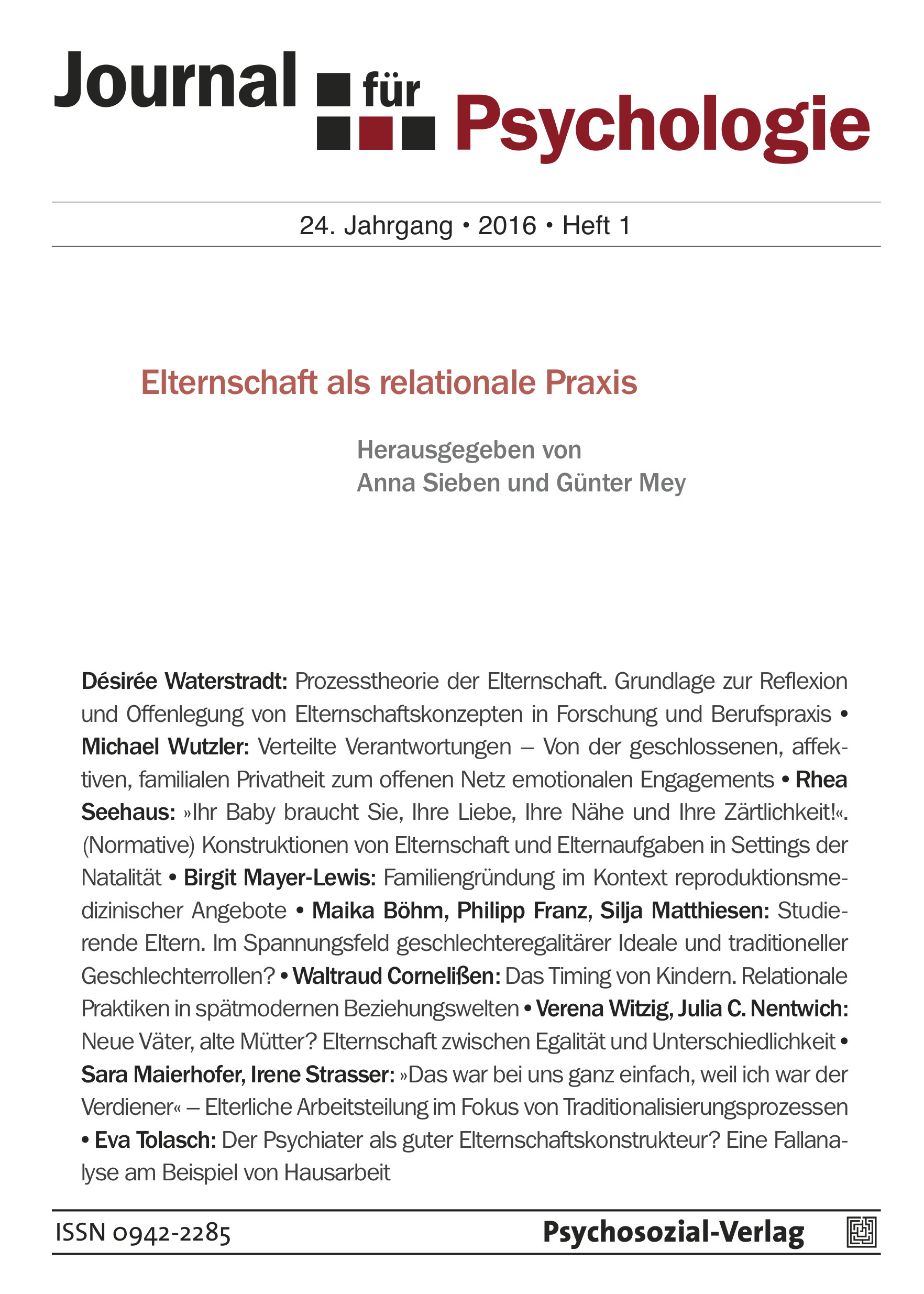The Timing of Children. Relational practices in late modern relationships
Keywords:
Individualization, institutionalization of life course, timing of pregnancies, modern and late modern relationships, contrasting case studyAbstract
Existing research on generativity and parenthood has often focused on modern stable long-term relationships. On the contrary this article focusses on late modern relationships, characterized by an undetermined degree of commitment, and analyzes the interactive practices which affect the timing of child bearing. Two cases drawn from a sample of 25 couples and individuals are contrasted. The first (modern) couple starts a family according to the pattern endorsed by West German institutions and culture. Their first child is born after they have achieved the normatively expected and subjectively desired preconditions for starting a family. This couple is contrasted with a woman engaged in late modern types of relationships. Her timing follows neither a predetermined nor a long-term plan. The reasons for her acceptance of unplanned pregnancies and her emotional impulses towards pregnancies within her late modern relationships are highly situational and individualized. The assumptions of a standardized cost-benefit calculus and rational long-term planning contribute little in explaining the timing of child bearing in late modern types of relationships, where the »right time« for a child in the modern sense does not exist.Downloads
Published
2012-02-22
How to Cite
Cornelißen, Waltraud. 2012. “The Timing of Children. Relational Practices in Late Modern Relationships”. Journal für Psychologie 24 (1). https://journal-fuer-psychologie.de/article/view/396.
Issue
Section
Schwerpunkt
License
This license allows private use and unmodified distribution, but prohibits editing and commercial use (further information can be found at: https://creativecommons.org/licenses/by-nc-nd/4.0/).
The terms of the Creative Commons licence only apply to the original material. The reuse of material from other sources (marked with a reference) such as charts, illustrations, photos and text extracts may require further permission for use from the respective copyrights holder.



